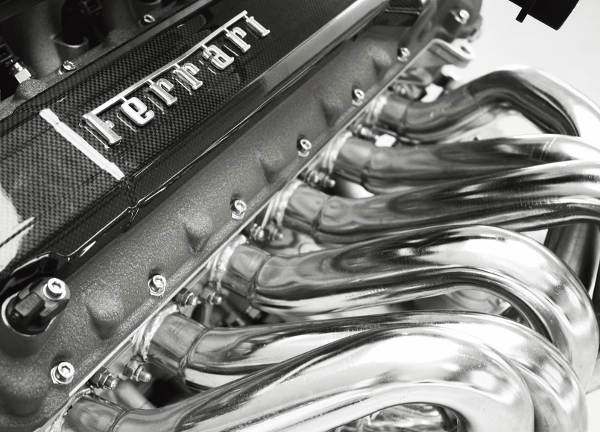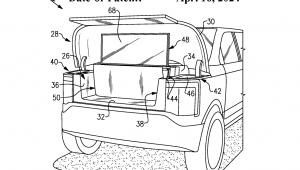The Rapture of the Rumble

Let us begin with the facts, which are indisputable. Fact: Theologians unanimously agree that God intended that cars should be powered by internal combustion engines (ICE). Any other means of automotive power is heresy. I’ve written before about how awesomely cool ICE cars are. I mean, we are talking turntable LP cool here.
Also fact: Theologians agree on the reason why God likes ICE. It is because the sound they make — that basso-profundo rumble that stirs the soul as the car passes by — is a religious experience. Drivers of loud ICE cars should not get a traffic ticket, but a ticket to heaven.
What is that blasphemy you speak? Electric vehicles? They are heresy and their devilry will lead people to no good. Have you ever seen a lightning bolt strike an electric car? I haven’t either. But I bet it isn’t pretty.
Still, we are troubled. Theologians cannot truly understand why God anointed internal combustion as the Chosen Engine. While it is true that the sound of an ICE engine nearing red line is identical to the sound of a thousand angels singing, it is also true that the emissions from the engine pollute the very air we breathe. How can making the sound of angels simultaneously be so glorious, and also trash the planet? Therein lies a paradox.
Of course, the best way to address metaphysical paradoxes is with government regulations. Thus, regulatory agencies, which are clearly far down on the hierarchy from God, but which often like to think of themselves as greater than Him, are waging war on the internal combustion engine. This is clearly going against God’s wishes, but when it comes to paradoxes, you eventually need to choose a side and stick with it.
Anyway, arguing that the ICE is a major contributor to CO2 and other emissions that contribute to climate change, society now frowns upon gasoline culture and intends to cancel it. Climate change is killing sound quality. Right about now, you’re probably dismissing the whole issue; you’re thinking that the turbo in your car sounds peachy keen. Well, if you think that, you are delusional. There’s never been, and never will be, a turbo, that sounds like a naturally-aspirated ICE. Forced induction motors sound like whiny little vacuum cleaners.
You realize, I hope, that car makers employ a plethora of gimmicks to try to make turbos sound decent. Surely you know that the happy burbles from your turbo’s tailpipe are merely computer-controlled trickery. Some turbo cars use acoustic plumbing from the intake to the cabin to try to fool you into thinking your turbo sounds cool. Some use a transducer that vibrates the firewall. Many simply play the soundtrack of a good-sounding engine through your car’s audio system. And don’t bother trying to defeat it by turning down your audio volume; the fake motor sounds bypass the control. Also, don’t bother checking your owner’s manual since car makers would prefer you don’t know.
Maybe you think that worrying about the sound quality of car engines is silly and that car nuts should just get over it. Well, what if science proved that loudspeaker cones caused climate change and little by little companies were forced to make smaller and smaller cones. Now, your subwoofer has a 2-inch cone and it sounds terrible. Not so funny now, is it? Listen, there is only so much horsepower we can safely use on public roads. But the sound of the engine is always with us. The sound of a car is important.
I call upon theologians everywhere to ponder a profound theory that just occurred to me. Maybe it isn’t ICE emissions that are causing climate change. Maybe God is punishing us for taking away his favorite sound: the rapture of barely controlled explosions over pistons.
Finally, we come to Signore Enzo Ferrari. Referring to the angelic-sounding V12 engines in his cars, he famously stated, probably with considerable emphasis and passion: “The sound of a 12-cylinder engine should be listened to as if it were a symphony.” I do not know if il Commendatore was a religious man, but in this matter, he was certainly righteous.
Ken C. Pohlmann is an electrical engineer specializing in audio topics as a consultant and writer. He is Professor Emeritus at the University of Miami.
























































